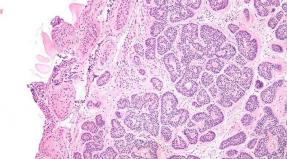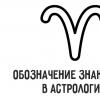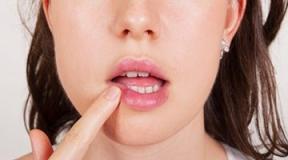Sodium Ascorbate (E301). General characteristics and receipt of the effect on human body health: benefit and harm
General characteristics and receipt
E301 is a sodium salt of ascorbic acid. It is a powder-like substance of white. The smell is absent, taste - with characteristic acid. In water dissolves well, in fats - it does not dissolve.
Transportation of sodium ascorbate and its storage is carried out according to special rules. It can not be mixed with other substances. Package E301 in a special container and be sure to fit into an additional polyethylene liner or laminated food foil.
For the production of additives use:
- ascorbic acid;
- water;
- sodium bicarbonate (soda).
Ascorbic acid is dissolved in water, caustic soda is added. As a result, foaming occurs. When it ends up isopropanol and sodium ascorbate is precipitated with it.
Purpose
E301 is an antioxidant, antioxidant, preservative. It regulates pH, stabilizes the shade of products, improves taste, retains the structure of the raw material, increases the shelf life.
Impact on human body health: benefit and harm
Ascorbat sodium is a safe additive that does not harm health with reasonable use. To prevent an overdose, it is recommended not to go beyond the maximum daily dose of 15 mg per kilogram of weight.
E301 is a biological form of ascorbic acid, therefore, there are the same beneficial properties as Vitamin C. Thanks to the presence of alkali, the taste of additives is softer. It can use people who are contraindicated by the reception of ascorbic acid in pure form (for example, due to allergies or increased acidity of the stomach).
Positive effect of sodium ascorbate:
- does not allow the accumulation of free radicals in the body;
- reduces the risk of heart disease;
- serves as prevention of vitamin C;
- prevents atherosclerosis;
- helps to cope with infectious and chronic diseases;
- enhances immunity.
The American National Institute of Health conducted studies that showed the ability of Sodium ascorbate to prevent cancer development.
E301 consumption in large quantities can disrupt digestion. The additive may cause negative consequences in renal failure and diseases of the urinary system. This is due to the fact that excess substances in the body are split up to oxalic acid, which forms oxolates when interacting with calcium. As a result, kidney stones may occur.
Using
As a dietary additive, sodium ascorbate performs many functions. It supports the necessary level of acidity, delays oxidation processes, protects products from damage, fixes painting and suppresses the toxic effect of nitrates.

Products in which E301 add:
- fruits and vegetables (spray the surface to protect against damage and darkening);
- meat and fish products;
- bakery products (to improve the quality of the test);
- beer (additive slows fermentation);
- juices, fruit wines;
- fruits and vegetables in canned form;
- baby food (juices, drinks, biscuits, crackers, grain products).
E301 also use the following industries:
- cosmetology (added to shampoos, agents against aging, lifting creams);
- medicine (in the manufacture of vitamin preparations, drugs against viral diseases, tools for improving immunity);
- livestock (as part of vitamin supplements for feed).
Ascorbat sodium is part of the drug "Askoscin". The drug strengthens the protective forces of the body. The additive is also used for the production of cosmetics for children.
|
Food Product |
Maximum level of E301 content in products |
|
Powdered milk |
According to T. |
|
Fruits and vegetables are raw: frozen, ready-to-eat chilled and packed, purified potatoes packed |
According to T. |
|
Canned fruits and vegetables |
According to T. |
|
Meat semi-finished and minced meat, natural packaged |
According to T. |
|
According to T. |
|
|
According to T. |
|
|
Pasta |
According to T. |
|
Baby food: juices, drinks based on fruits and vegetables |
|
|
Baby food: products containing fat based on grain, including biscuits and crackers |
Legislation
Sodium ascorbate refers to safe food additives, so there is no ban on its use. The list of countries applying the E301, Russia and Ukraine are listed. More about antioxidant tells the video below.
E301 or ascorbat sodium - This is a dietary supplement that you can meet in the list of ingredients of many foods: sausages, other meat products, children's blends, bakery products and many others. However, this "ECHA" should not scare you. It represents one of the varieties of vitamin C - salt of sodium acid ascorbic.
Outward Ascorbat sodium, sodium is a powder solid substance, painted either in white or in light sand color.
Sodium ascorbate formula is as follows - C 6 H 7 NaO 6.
We also note that the food antioxidant E301 is allowed to use in all countries of the world, which is due not only to its safety for the body, but also the benefit that he carries.
Applying food additive
 Antioxidant E301 is most often used in the production of various foods. For example, it includes it in all sorts of baking, in which it is used as an acidity regulator. E301 is added to various meat products to stabilize the color. Moreover maybe sodium ascorbat perform the role of preservative, extending the life of food. By the way, for this purpose, the E301 includes margarine, mayonnaise and such fat-containing products.
Antioxidant E301 is most often used in the production of various foods. For example, it includes it in all sorts of baking, in which it is used as an acidity regulator. E301 is added to various meat products to stabilize the color. Moreover maybe sodium ascorbat perform the role of preservative, extending the life of food. By the way, for this purpose, the E301 includes margarine, mayonnaise and such fat-containing products.
Sometimes the E301 food additive includes a product formulation in order to enrich it with vitamin C.
There is also a medical application of sodium ascorbate. It is part of the drug called "Askoscin", which is used to strengthen immunity.
Impact on the body: benefit or harm?
The most important positive action of sodium ascorbate is its impact on the human immune system. This dietary supplement strengthens it. By the way, the sodium ascorbate is an excellent alternative to vitamin C for those patients who, by virtue of the increased acidity of the gastric juice, cannot consume it. It is also prescribed it in the case of individual intolerance to pure ascorbic acid. In addition, it is recommended to use as a vitamin C for children.

Food additive E301 has a number of positive properties. For example, it is an excellent prevention of cardiovascular diseases and atherosclerosis. In addition, it is believed that this antioxidant helps even in the fight against oncology.
It is worth noting that the E301 additive is not only benefited, but harm. With a systematic increase in the daily rate of consumption, which is 15 mg per kilogram of weight, it is possible to form stones in the kidneys, as well as unpleasant consequences from the urinary tract. This is due to the fact that the excess of the sodium ascorbate is split to the oxalic acid, which is very harmful to people having a kidney disease and the excretory system as a whole.
Names-synonyms of food additive E301
The food additive, which was discussed in this article, can also wear such names:
- ascorbat sodium;
- sodium ascorbinovascular;
- salt sodium acid ascorbic;
- Sodium Ascorbate.
With a ruver chemical industry has long served the interests of the food industry. But most often these services are far from consumer. Among the food additives, oddly enough, sometimes there are relatively harmless nutritional supplements, but the food industry has put them on the service of their interests. And what happened from it - this is written on the uneven hieroglypho-like handwriting of the district doctor in the medical records of consumers. One of these, at first glance, harmless food additives is a food additive E 301.
E 301 (dietary supplement): what is it
What is the food additive E 301? E 301 is the biological form of vitamin C - ascorbat sodium. Simply put, sodium salt of vitamin C. Preparation of sodium ascorbate occurs by dissolving ascorbic acid in water. Next, this solution is diluted with sodium bicarbonate. After that, the desired product is obtained during the sediment, which, in turn, is formed by adding isopropanol.
Agree: Without higher chemical education, most of us are difficult to understand that for complex ingenious manipulations are described above. So, the issue of naturalness here is not even worth it. However, despite this, it is believed that the E 301 additive prevents the development of cancer, atherosclerosis, heart diseases, infectious diseases. But do not be deceived. The additive E 301 itself, as always in such cases, is added to the products not for the forces of consumer health, but in order to get more benefits from the sale of the product.
What role does e 301 play? Sodium ascorbate is widely used in the meat industry, giving the dead flesh a more acceptable and pleasant look. Ascorbat Sodium changes the color of meat and fish canned, as well as other meat products in order to give them a commodity and attract consumer attention. Sodium ascorbate also performs the functions of the antioxidant and the acidity regulator.
Thus, despite the relative harmability of the additive itself, the use of it most often occurs in the production of harmful products for the body.
Not rarely as part of most products from stores can be found component E301 (sodium ascorbate). The harm and benefits of food additives have very blurred faces. The fact that they are indicated on the product label does not mean that they are not harassable and harmless.
Sodium ascorbate is an antioxidant, which is added to most products to enhance taste and stabilize color. It is very similar to ascorbic acid from the point of view of chemistry. Scientists call it a biological species of vitamin C. Therefore, already focusing on the similarity with such a useful component, you can safely breathe with relief.
The E301 component is represented as a powder, which is obtained from ascorbic acid, dissolving it in water and adding sodium bicarbonate. The process proceeds to the formation of foam, then sodium ascorbate is precipitated with isopropanol. The food additive category E is 301 more positive sides. First of all, it is used in the food industry to improve the taste and regulator of acidity. It supports the natural shade of the product, such as sausages. E301 is actively used when baking bread, buns, mayonnaise and margarine. In addition to the food industry, the additive can be found in the pharmaceutical. So, there is an axocin preparation for sale, which is prescribed to increase immunity.
Food additive E301 is a safe component for human health. It has been proven that it prevents the appearance of atherosclerosis and heart disease. Ascorbat Sodium is actively involved in the fight against viral and infectious diseases. People who do not tolerate ascorbic acid or they have increased stomach acidity, products or preparations with this additive are prescribed.
There are studies whose results indicate the ability of sodium ascorbate to resist cancer diseases. Doctors recommend with caution to use products with an additive E301 if there are diseases of the urinary system. In other cases, this supplement is absolutely harmless, and even useful for children instead of vitamin C. Abused vitamin substitute with not desirable. However, it is worth understanding that each person transfers the effect of products and their components in different ways. It is necessary to take this seriously and in the first use to observe the general state of health.
You may also like it:
 E471 (emulsifier) \u200b\u200bharm and benefits of food additives on the body
E471 (emulsifier) \u200b\u200bharm and benefits of food additives on the body
 E1442 (oxypropyl dicracmalphosphate) - harmful additives for the body
E1442 (oxypropyl dicracmalphosphate) - harmful additives for the body
 Coenzyme Q10 - benefit and harm to health. What products contain coenzyme Q10?
Coenzyme Q10 - benefit and harm to health. What products contain coenzyme Q10?
 The benefits and harm of the manager on the body and side effects
The benefits and harm of the manager on the body and side effects
 Coco Glucoside (COFOGLUKOSID): harm and benefit for human body
Coco Glucoside (COFOGLUKOSID): harm and benefit for human body
 Warrex 7 - Food additive - harm or benefit?
Warrex 7 - Food additive - harm or benefit?
 Pectin - the benefits and harm to the body and how to apply!
Pectin - the benefits and harm to the body and how to apply!
Sodium ascorbat can often be found in the list of food additives in quite familiar products. Because of this, many people have a fair question regarding, and does not cause this component harm.
In fact, a substance that in a specific classification takes place under the E301 ordinary number, is one of the species that is recommended to use adults and children.
From a chemical point of view, the composition provides for a sodium salt of ascorbic acid. It performs the role of antioxidant, if you connect together with the E300.
Distinctive features
Externally, the antioxidant has no atypical products for this kind of products compared to other widespread additives. This substance in the form of a powder has a white color and is well soluble in.
But in terms of transportation and subsequent storage to this powder, special requirements are put forward. It is about the need to protect the purchase from mixing with other substances even in minimal quantity.
In the food production, the agent is added to impede the final taste characteristics, as well as adjust the acidity indicator. Similar properties are especially necessary in one bottle for the production of bakery products.
Found an antioxidant wide application on the production field and. With the help of this additive, the technologists achieve a significant extension of storage period without loss of initial qualities to taste, aroma, consistency.
For food supplement there was a place even in the production of canned and sausages. There, experts attract it in order to avoid the possible portion of the finished product, which often pursues completely natural products when the fat is oxidized. Blocks E301 a significant change in nested nitrates at the expense of its stabilizing properties. As a result, the finished sausage product is capable of boasting a rack and approximate to the natural range of color.
In addition to widespread use in the field of food industry, Ascorbat also began to be used by pharmaceutical companies for the creation of medical drugs. The most striking example is the drug Askoscin. One tablet medication contains approximately 400 mg of such a actant. With regular reception, it turns out to strengthen the immune system, which is especially important in the winter season during a surge of seasonal diseases. You can buy it in a pharmacy.
Legislative approach
In most states, the dietary supplement is in the list of allowed. This is explained by the fact that during numerous studies, researchers came to an unequivocal conclusion. The benefits and the absence of a direct threat to the body outweigh the possible harm.
The most important thing in this case is to adhere to the recommended dosage. Experts advise to consume no more than 15 mg per 1 kg of consumer weight. It is important to take into account all possible sources of ascorbate at once.



















